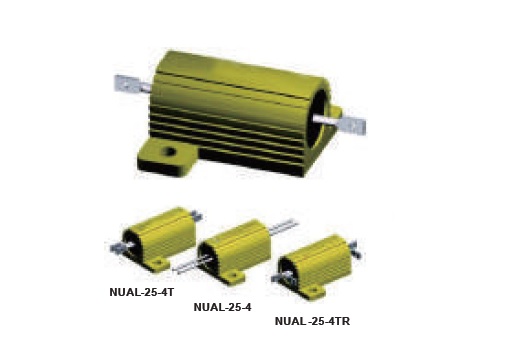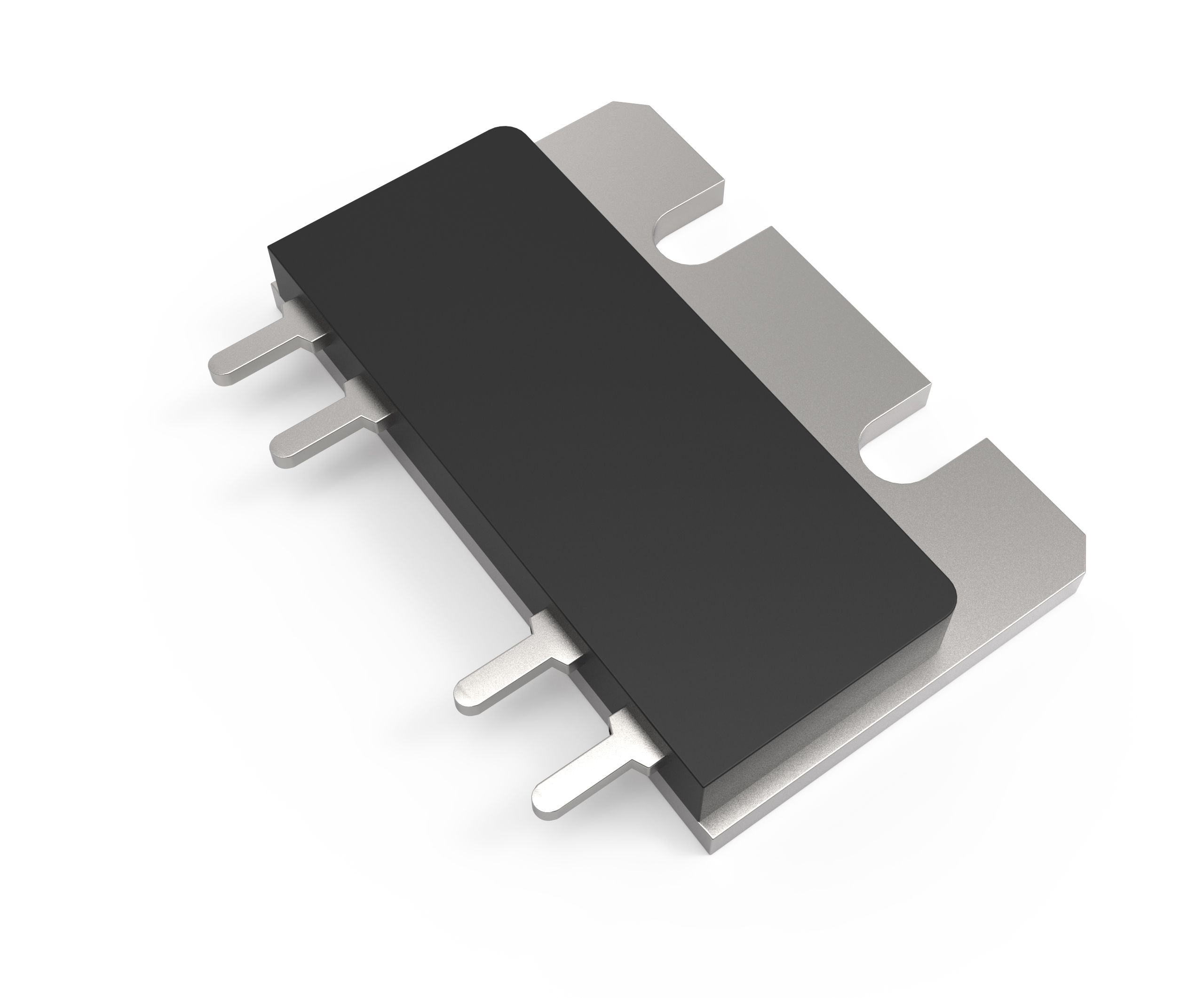Position:Home » Technical Articles
Power Resistors' Rated Power and Its Significance
Writer:Microhm Page View:Date:2019-06-05
Power resistors' wattage rating is specified at a temperature of 25C. As the temperature of a power resistor climbs above 25C, the power that the resistor can handle safety begins to drop. Since 25C is a typical room temperature, and any power dissipated by a power resistor generates heat, running a power resistor at its rated power level is often very difficult. To adjust for the expected operating conditions, manufacturers provide a derating chart which shows how much power the resistor can handle as the temperature of the resistor goes up. It is best to use the power derating curve as a guideline and stay well within the suggested operating area. Each type of resistor will have a different derating curve and different maximum operating tolerances.

Most electronics applications use low power resistors, typically 1/8th watt or less. However, applications such as power supplies, dynamic brakes, power conversion, amplifiers, and heaters often demand high power resistors. Generally, high power resistors are resistors that are rated for 1 watt or greater loads and are available in the kilowatt range.
The increased size helps to dissipate heat and often is used to provide mounting options for heatsinks. High power resistors are also often available in flame retardant packages to reduce the risk of a hazardous failure condition.

Several external factors can impact the power derating curve of a resistor. Adding forced air cooling, a heatsink, or better component mount to help dissipate the heat generated by the resistor will let a resistor handle more power and maintain a lower temperature. However, other factors work against cooling, such as the enclosure keeping heat generated in the ambient environment, nearby heat generating components and environmental factors such as humidity and altitude.

The increased size helps to dissipate heat and often is used to provide mounting options for heatsinks. High power resistors are also often available in flame retardant packages to reduce the risk of a hazardous failure condition.
Several external factors can impact the power derating curve of a resistor. Adding forced air cooling, a heatsink, or better component mount to help dissipate the heat generated by the resistor will let a resistor handle more power and maintain a lower temperature. However, other factors work against cooling, such as the enclosure keeping heat generated in the ambient environment, nearby heat generating components and environmental factors such as humidity and altitude.
Keywords:Power Resist
Latest News
- Resistor's role in measuring and correcting LED,,,
- Single through-hole resistors' characteristics ,,,
- Why shunt resistors for current sense applicati,,,
- Metal-film resistors with small size, high resi,,,
- 36W High-Current Shunt Resistors MMS8420,,,
- 1W Surface Mount Resistor MPR1206,,,
- An Overview of Microhm Electronics' Resistor Pr,,,
- More anti-sulfur resistors used in harsh envir,,,
- Resistance changes with temperature,,,
- 140W TO247 High Power Heatsinkable Resistor,,,
- MMS5930 is ideal for current sensing in industr,,,
- Shunt resistors selection for engineers' design,,,
- Considerations for choosing precision resistors,,,
- Ceramic Encased Cement Resistors NWH Series for,,,
- Resistors for Passive Balancing in Battery-Pow,,,
Hot Articles
- Microhm will take part in 10th Automotive World,,,
- Thanks for Visiting Microhm's Booth E5-5706 in ,,,
- Resistors in Short Supply: Blame Cars,,,
- New lunch: High Power Precision Shunt Resistor,,,,
- How to Test a Resistor,,,
- Innovative Technology, Future Electric: Electri,,,
- What is Precision Resistors?,,,
- SMD Resistors Sizes and Packages,,,
- The Construction and Features of Metal Film Res,,,
- What is a TO-220 Resisor?,,,
- Hot Selling Products: Precision Shunt Resistors,,,
- How to Calculate the Equivalent Resistance Valu,,,
- What is a Fixed Resistor?,,,
- Resistors in LED Circuits,,,
- Resistors Types and Materials Overview,,,
Resistance applications
- Heater Blower Motor Resistor in Air Conditioner,,,
- Shunt Resistor MMS8420 for High Current Stable ,,,
- Why Zero-Ohm Resistors?,,,
- Surface Mount Resistor's Size and Package ,,,
- Miniature future for passive electronic compone,,,
- Precision Resistors' Construction and TCR,,,
- The Measurement Accuracy of Automotive Shunt is,,,
- BMS for New Energy Vehicle,,,
- Urbanization Development Bringing the Transform,,,
- Carbon Film Resistors' Features and Application,,,
- The Four Important Functions of Alloy Resistors,,,
- Industrial Roberts Applied to Solar Photovoltai,,,
- The Main Application for High Precision and Low,,,
- Difference Between High Precision Resistors and,,,
- Select the Right Resistor for Harmonic Filterin,,,
